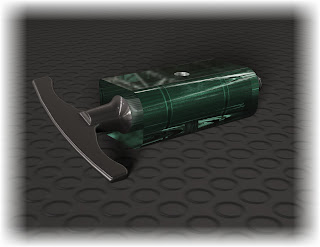William Saroyan
I remember when I was in industry, I worked with a lot of parts that were exposed to moisture. I would write down a lot of tolerances on a piece of paper, trying to figure out if if two parts would fit through their full range of those tight tolerances.
 |
| A representation of the type of parts I once worked on |
I still remember one case, over a decade later. I had carefully calculated my tolerances on a close tolerance part, and the list had been checked twice. The parts were sent out, and we waited eagerly for the first samples.
A few weeks later my boss had called me into his office, and he said the words no designer wants to hear.
"The first samples are in, and you made a mistake."
My heart sinks into my shoes.
"You added the Maximum Material Condition.... TWICE. The print is wrong."
"Oh dear." I answer. (Okay those weren't my actual words).
My boss smiles. "You lucked out."
My eyebrow raises.
My boss continues, "The manufacturers tooling cuts too much material, by the same value as your tolerance. They're asking if we can accept the deviation. I'm going to say after careful studying, we can accept it."
I smile. I can't help it. I've actually seen a case where two negatives made a positive! I'VE DEFIED MURPHY!
Still, it cost me some grief, and likely contributed to the current aerodynamic haircut covered by my snowboard helmet.
So what's the moral of my story? Inventor has a tool that would have helped me out a lot: Model Tolerances!
In short, it lets you set the tolerances of the dimensions in your model, then set them to the maximum material condition (for example). Then use the interference checker at those conditions.
It's a lot easier than my old piece of paper, and may have helped me stay away form my aerodynamic haircut a little bit longer! So here's the video of how I might have done it if had today's tools way back when!

No comments:
Post a Comment